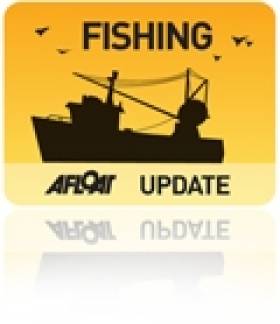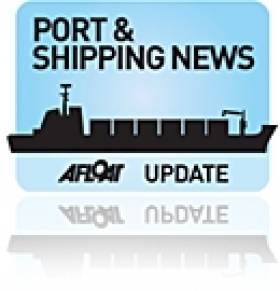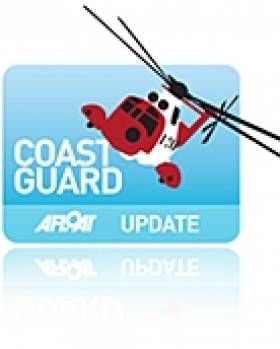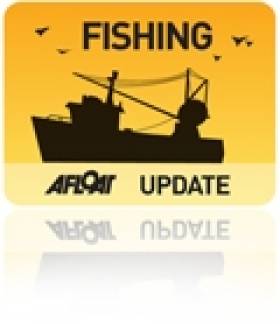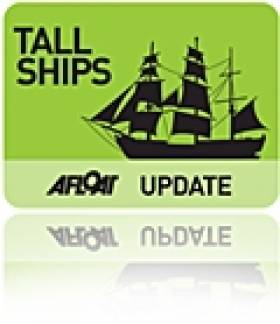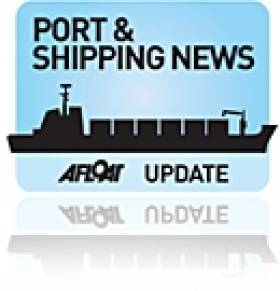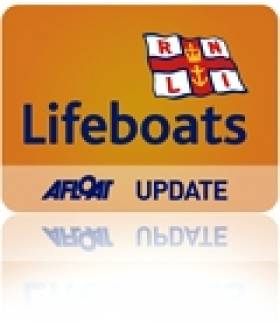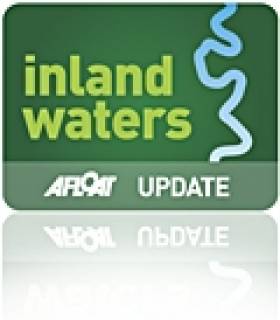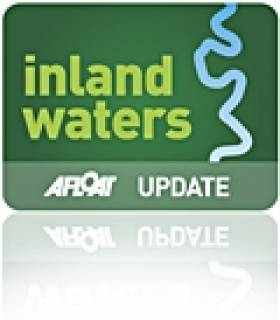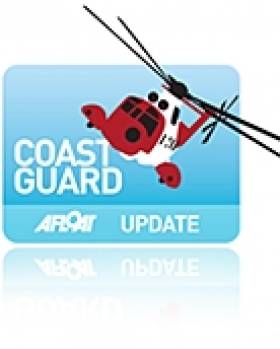Displaying items by tag: Vessel
Fishing Vessel Skipper Charged Over Carlingford Lough Collision
#collisio – At a hearing today in the County Court Division of South Down, Lindsay Haugh, the Skipper of the fishing vessel Onward N336, was fined a total of £2,500 plus costs of £231 after pleading guilty for failing to keep a proper lookout, according to the UK's Maritime and Coastguard agency.
On 12th September 2014 at approximately midnight the fishing vessel Onward N336 was heading back from fishing grounds in thick fog to its home port of Killkeel when it collided with the Clipper Pennant, a Seatruck Ferries vessel at anchor off Carlingford Lough, Northern Ireland.
Lindsay Haugh, aged 44, from Killkeel pleaded guilty to unlawful conduct endangering ships, structures or individuals off Carlingford Lough, contrary to section 58 of the Merchant Shipping Act 1995, in that he omitted to monitor the recognised VHF channels, omitted to view radar in reduced visibility and omitted to keep a proper look out and as such omissions were deliberate or amounted to a breach, or neglect of duty.
In passing sentence His Worship District Judge King said, "Haugh fully accepted his responsibility and pleaded guilty at the first opportunity.
"Sea collisions are a serious responsibility. You as captain at sea are responsible for the boat, the crew and other persons at sea.
This is a serious matter and thankfully there was no serious damage or loss of life."
David Carlisle, Consultant Surveyor at the Maritime & Coastguard Agency (MCA) said: "This was a serious avoidable incident. Mr Haugh did not keep an effective watch in what was serious reduced visibility, nor did he observe the warning signals sounded from the Clipper Pennant."
Imminent Transfer of Genmar Oil Cargo
#GENMAR – After delays due to bad weather, the operation to remove 54,304 tonnes of Vacuum Gas Oil from the merchant vessel Genmar Companion is expected commence imminently (6th January).
Both ships are currently being manoeuvred together by tugs and are being held side- by-side 1.5miles out in Belfast Lough. The cargo is transferred from one to the other using specialist equipment.
The operation to berth, make lines secure and conduct final checks will take several hours before the actual transfer of the oil begins.
The operation to offload the cargo to the tanker BW Seine is expected to take between 24 and 36 hours. For the duration of the operation there will be a one- mile exclusion zone around the Genmar Companion and BW Seine to give the tugs a safe working area.
Fishing Vessel Runs Aground at Ardglass Harbour
The 15 metre vessel was returning from a fishing trip when it hit the rocks. With the vessel listing at 30 degrees they broadcast a mayday alert on Channel 16 before the four crew took to the life raft. They were rescued from there by another fishing vessel 'The Three Coins'.
All four crew were brought ashore at Ardglass Harbour safe and well where the South Down Coastguard Rescue Team met them. The damage to the 'Moyuna' is now being assessed.
Belfast Coastguard Watch Manager Alan Pritchard said:
"The crew did exactly the right thing in calling for assistance and taking to the life raft to wait for help to reach them.
"The MAIB have been informed and they will be investigating the circumstances that led to tonight's grounding. MCA's surveyors are also aware."
Fishing Vessel Skipper Pleads Guilty
On 3rd January 2011 the UK registered fishing vessel 'Karen' was returning from a day's fishing in the Irish Sea when it grounded on the rocks at the North entrance to the port of Ardglass.
The vessel asked for urgent assistance from the Coastguard and the lifeboat from Portaferry was requested to launch to their aid. Because the weather was fair they were able to bring the crew ashore to Ardglass and to put pumps aboard the stricken vessel. The boat was later re-floated as the tide rose, however it sustained serious damage to the bow and keel.
At the Magistrate's Court in Downpatrick on 7th November 2011, skipper Simon Wills pleaded guilty of failing to properly navigate his vessel and to employing crew who were not qualified and did not meet the requirements of the fishing vessel safety training regulations
Mr Wills was fined a total of £600 and ordered to pay £1,250 to the RNLI.
On summing up the Magistrate Brian Archer said,
"It was fortunate that no one was injured."
Captain Bill Bennett, Area Operations Manager (Survey and Inspection) Belfast, for the MCA stated that
"This was a serious breach of the fishing vessel safety training regulations and once again reminds all fishermen of the need to ensure everyone onboard is properly qualified and to safely navigate his vessel and to maintain a lookout at all times. All breaches of the Maritime Regulations are taken seriously by the Maritime and Coastguard Agency."
Sail Training Vessel Rescued by Weymouth RNLI (Video here.)
The crew of the Weymouth RNLI relief Severn class all-weather lifeboat Beth Sell assisted a 24 metre sail training vessel with 16 persons onboard that was dismasted South of Portland Bill. The footage taken by crew members iphones and pentax hand held camera. SCROLL DOWN FOR VIDEO
Storms continued to batter Britain and Ireland's coast today as autumn arrived with a roar as forecasters warned the unsettled conditions could last for two weeks.
The Sail Training Vessel's wooden 90ft tall mast broke in half in the force seven winds and the boom, sail and rigging plunged into the choppy 12ft seas.The crew of the stricken yacht, who were all young adults, were unable to retrieve the stricken mast in the poor conditions and called the Coastguard for help.
The Weymouth RNLI lifeboat rushed to the scene at around 5.35pm yesterday.
None of the sailors were injured in the incident, although some were suffering from seasickness in the rough conditions.
The Daily Mail has more here
Minister Coveney is meeting the Harbour Master and will be briefed by the various agencies who are involved in the operation, including the Irish Coast Guard, Galway County Council and the ship's representatives and will be given a full assessment of the current situation and the contingency arrangements being put in place by the agencies involved for the next few days.
The Minister said "I am anxious to see the situation for myself and to express my support to all involved in this multi-agency operation. While this is obviously a very serious and evolving situation, I have full confidence in the Harbour Master and his staff, the Coast Guard and the other agencies involved to do a fully professional job to address the current situation. The purpose of my visit is to reassure all those concerned that this incident is getting the priority it deserves. I am especially concerned to ensure that all appropriate measures are taken to protect the harbour and the local environment and to avoid any pollution during the very challenging efforts to refloat the vessel. "
The current situation and the weather forecast are being carefully monitored by the Coast Guard. Initial investigations, including evidence from divers, indicate no apparent damage to the vessel and no pollution has been reported. Meanwhile, the vessel's owners are in the process of organising tugs to help move it from its current position.
Crew Brought to Safety by Dun Laoghaire Lifeboat
The pair anchored their boat as a precaution and awaited the arrival of the lifeboat that was already at sea on a routine exercise less than two miles away.
A towline was passed to the vessel and was taken to safety and brought alongside at Dun Laoghaire.
Related Safety posts
RNLI Lifeboats in Ireland
Safety News
Rescue News from RNLI Lifeboats in Ireland
Coast Guard News from Ireland
Water Safety News from Ireland
Marine Casualty Investigation Board News
Marine Warnings
Waterways Ireland to Apply 'Five Day Rule' This Month
Waterways Ireland has reminded all Masters and users of the Grand Canal on Ireland's inland waterways that it intends to move vessels double or tripled berthed on the Grand Canal and Shannon Harbour that contravene the five day rule.
The enforcement of SI No. 24/1988: Canals Act, 1986 Bye Law (25 ,1 (d)) applies to all hard edged moorings in the harbour area with effect from 17th March 2011.
At Tullamore this area is deemed to be between White Hall Bridge and Waterways Ireland Offices.
At Shannon Harbour The area is deemed to be between 35th Lock Eastwards to Griffith Bridge.This enforcement will clear the channel for navigation and facilitate the movement of both visiting and Shannon Harbour based vessels. Alternative berthing is available upstream of Griffith Bridge. Boats should only be moored singly on either side of the canal to permit the safe passage of craft. Bye Law (25, 1 (b) states that sufficient space must remain so that two vessels can pass at the same time. Berthage is also available on the North Bank between 35th and 36th Lock.
Vessels in contravention of this bye-law will be moved East or West of the area as space becomes available. Non permitted vessels will also be moved.
This enforcement will facilitate the movement of visiting vessels. Vessels should only moor directly onto quay walls and not double and triple berth. Alternative berthing is available on the main line.
Vessels in contravention of this bye-law will be moved onto the main line. Non permitted vessels will also be moved.
Owners and Masters of vessels are requested to assist in this enforcement in order to open the area to more vessels and facilitate the proper use of the harbour.
End of Winter Mooring Period in Public Harbours
Missing 18-Year Old Found After Two Hour Search in Bangor
The call came in at 23.40 from a member of the marina staff after the boy's two friends had told him that all three of them had climbed over the gate into the pier, but that their friend had not come back and they were concerned that he must have fallen into the water.
Belfast Coastguard sent the Bangor Coastguard Rescue Team to begin a search, as well as requesting the launch of the Bangor RNLI lifeboat. Members of the Police, Ambulance and Fire Service are also on scene.
At 01.50, the boy was found hiding in a compartment in the crew accommodation of a fishing vessel near the pier, and the search was stood down.
Belfast Coastguard Watch Manager Alan Pritchard said:
"This group of three boys had been at a birthday party in the town before climbing the gate this evening to access the pier. Incidents such as these remind of us of the dangers of being in proximity to the water when you have been drinking alcohol – be it going swimming, or walking along cliffs or piers. Although on this occasion the boy has been found safe and well, this could easily have been a much more serious incident."



























